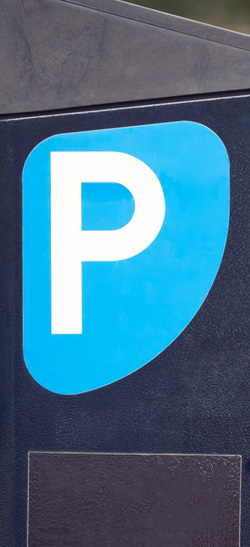The short answer is no, Scottish bank notes are not legal tender in England, or even in Scotland for that matter.
Legal tender refers to money that can be accepted as payment for a debt. The HM Treasury defines legal tender in England and Wales as Bank of England notes, while in Scotland, no banknotes (not even those issued by the Scottish economy) have legal tender status.
Despite this, Scottish notes are a legal currency and widely accepted across the UK, but their acceptance depends on the discretion of the individual, shop owner, or business.
What are Scottish Banknotes?
Scottish banknotes are genuine and issued by the Bank of Scotland, the Royal Bank of Scotland (RBS), and Clydesdale Bank. These Scottish banks issue the majority of banknotes circulating in the country.
Each Scottish note denomination has an agreed size and predominant colour. They are:
- £5 Notes: Blue.
- £10 Notes: Brown.
- £20 Notes: Purple.
- £50 Notes: Green.
- £100 Notes: Red.
- £1 Notes: Green. Only the Royal Bank of Scotland issues £1 notes.
The currency is widely accepted for transactions, although acceptance when travelling abroad can depend on the recipient’s discretion.
These notes are celebrated for their intricate and creative designs, which showcase Scotland’s cultural and historical heritage.
Can You Spend Scottish Notes in England?
Scottish banknotes can be spent in England, but their acceptance is not guaranteed.
Scottish notes are not legal tender in England; only genuine Bank of England notes are. However, they are fully backed and recognised as a valid currency, which means they are legitimate for transactions across Great Britain.
In practice, many businesses in England accept Scottish notes, especially those near the border or tourist-friendly locations.
Despite this, some businesses may refuse them due to unfamiliarity or personal discretion. To avoid inconvenience, it’s a good idea to carry English banknotes as funds whilst abroad or ask beforehand if Scottish notes will be accepted.
If needed, Scottish banknotes can be exchanged for English notes or traveller’s cheques at local banks or post offices.
The Authenticity of Scottish Notes
To verify authenticity, the Royal Bank of Scotland issues banknotes with several security features to prove genuine. These include raised print, watermark, see-through registration device, micro lettering, metallic security thread, serial numbers and holographic elements.
Legal Tender vs Acceptable Currency
Legal tender has a narrow technical meaning, which varies from what is a broader acceptable form of currency. Let’s explore the difference between the two.
Legal Tender
Legal tender refers to the form of money that must be accepted if offered to pay a debt.
In the UK, for example, only Bank of England notes are considered legal tender in England and Wales, while coins have specific legal tender limits depending on their denomination.
In England and Wales, legal currency includes Royal Mint coins and Bank of England notes, while in Scotland and Northern Ireland, only Royal Mint coins hold legal tender status, not banknotes.
Acceptable Currency
Acceptable currency, on the other hand, refers to money that is widely recognised and voluntarily accepted for transactions.
This includes Scottish and Northern Ireland banknotes, which, while not legal tender, are legitimate and fully backed by the issuing banks. This highlights how legal tenders have less practical meaning in day-to-day payments.
Their acceptance depends entirely on the discretion of the individual or business, meaning they may only sometimes be readily accepted outside their region of origin.
What Should You Do If a Scottish Note Is Refused?
If a Scottish note is refused, there are a few steps you can take:
- Explain its Validity: Politely inform the business or individual that Scottish notes are a legitimate form of currency in the UK, fully backed by the issuing banks. While they are not legal tender, they are widely accepted.
- Offer an Alternative: If the business remains hesitant, consider offering payment with other notes, debit cards, or other universally accepted methods.
- Exchange the Note: If you consistently face challenges in everyday transactions using Scottish notes, you can exchange them for English notes at most high street banks and post offices. They are familiar with Scottish notes and will typically exchange them without issue.
- Prepared in Advance: To minimise inconvenience, you could exchange some Scottish notes for Bank of England currency before travelling to England or other parts of the UK.
Why is There Confusion About Scottish Notes in England?
The confusion surrounding Scottish banknotes in England stems from differences in legal tender laws and public familiarity.
In England, where people are primarily used to Bank of England notes, unfamiliarity with the Scottish note can lead to uncertainty about its validity. This can result in hesitation or outright refusal by some businesses or individuals.
The broader issue highlights challenges in managing and accepting diverse forms of cash, particularly in a world increasingly focused on seamless and integrated payment systems.
What is CashTech?
CashTech revolutionises cash management by blending innovative technology with traditional cash handling. It enables businesses to manage cash transactions with the same ease, accuracy, and security as digital payments.
Despite growing digital trends, physical cash remains essential for many consumers, and 56% of organisations foresee cash as a lasting part of their operations.
CashTech simplifies processes like reconciliation, enhances security, and supports diverse currency needs, including regional variations like Scottish banknotes.
PayComplete offers cutting-edge CashTech solutions for businesses that want to bridge the gap between cash and digital payments. Discover how PayComplete can transform your payment processes today.

Related Posts








